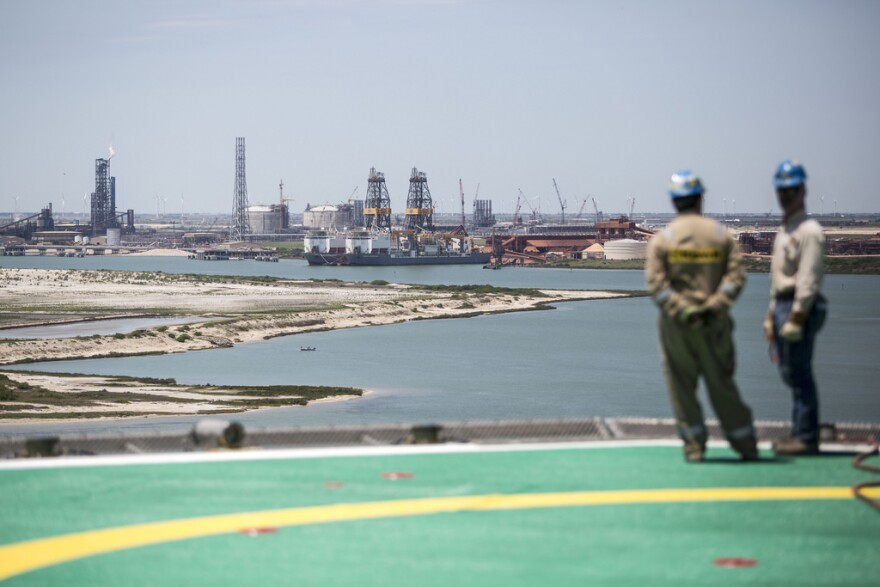A plan to build a publicly funded seawall to protect oil refineries has highlighted gaps in how oil and gas companies inform investors of potential risks associated with climate change.
Critics of the proposed wall along the Gulf Coast argue companies contributing to global warming shouldn’t ask for taxpayer assistance for protection against it. Industry, of course, disagrees, but the spat over the wall raises another question of whether companies effectively warn investors about risks associated with these sorts of projects – namely losses attributable to flooding and storm surge.
In 2010, the Securities and Exchange Commission said that companies had to take into account the impact of global warming as part of the financial disclosures they give to investors, but the way companies do it can be vague and, some say, misleading.
Christina Simeone of the Kleinman Center for Energy Policy at the University of Pennsylvania looked at disclosures from some oil companies with refineries that would benefit from flood and storm protection along the Gulf. She says some don’t really talk about the need for a seawall to protect their assets – like whether investments will become stranded if the seawall isn't constructed, or whether investors would have to use their own money to recoup losses.
Simeone says the lack of detail in these types of disclosures could leave investors holding the bag.
Earlier this year, the Government Accountability Office urged greater clarity in rules requiring climate-related financial disclosures.
Simeone says the seawall is a good example of what the government accountability office found – that "there is a lack of specificity and disclosure of quantifiable risk.”
When news broke about the plan to prioritize protecting refineries and petrochemical plants, the industry responded to criticism, saying that it already pays its fair share into programs for protection.
The Obama administration began efforts to shore up these climate disclosure rules, but federal action to clarify them has stalled out under the Trump administration.


